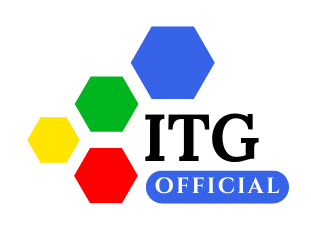Introduction: Why Digital Marketing Is the Future
In a world driven by smartphones, social media, and online shopping, digital marketing has become the backbone of modern business. Startups, small businesses, and global brands — all need digital marketing to grow, engage customers, and increase sales.
So, if you’re wondering how to build a career in digital marketing, you’re thinking in the right direction. This is a field with growing demand, high-paying roles, creative freedom, and endless learning opportunities.
What Is Digital Marketing?
Digital marketing is the process of promoting products or services through digital channels. These include search engines, social media, email, websites, and mobile apps. It involves strategies like:
- SEO (Search Engine Optimization)
- E-commerce Marketing
- Social Media Marketing
- Email Marketing
- PPC (Pay-Per-Click Advertising)
- Affiliate & Influencer Marketing
Each area plays a specific role in reaching the right audience, generating leads, and driving conversions.
Why Choose a Career in Digital Marketing?
Here are some strong reasons to consider a career in digital marketing:
- High Demand: Every business needs online marketing.
- Freelance or Full-Time: Choose a path that suits your lifestyle.
- No Specific Degree Needed: Skills matter more than a formal degree.
- Work from Anywhere: Many jobs are remote-friendly.
- Multiple Career Paths: From SEO expert to content strategist.
Whether you’re a student, graduate, or working professional, there’s a spot for you in this growing industry.
Step-by-Step Guide: How to Build a Career in Digital Marketing
1. Learn the Basics of Digital Marketing
Start with an overview of how the online marketing ecosystem works. Learn the fundamentals of:
- SEO
- SEM (Search Engine Marketing)
- Content marketing
- Social media strategy
- Web analytics
Many online platforms offer beginner-level courses, including YouTube and free certification portals.
2. Choose Your Specialization
Digital marketing has many branches. Here are some popular ones:
| Specialization | What You’ll Do |
|---|---|
| SEO Specialist | Rank websites higher on Google |
| Social Media Marketer | Manage and grow brand profiles |
| Content Marketer | Write, plan, and distribute content |
| Email Marketer | Create campaigns that convert |
| PPC Expert | Run paid ads on Google/Facebook |
Pick one based on your interest, and go deeper into that domain.
3. Learn Industry Tools
To become job-ready, learn commonly used tools like:
- Google Analytics – for traffic analysis
- Google Ads – for paid ad campaigns
- Canva / Adobe – for designing posts
- SEMrush / Ubersuggest – for SEO and keyword research
- Meta Ads Manager – for Facebook/Instagram ads
Mastery of these tools will help you stand out in interviews or freelancing gigs.
4. Practice with Real Projects
Start a blog or Instagram page. Offer your services to a friend’s business or a local store. This practical exposure teaches you more than any course can.
Ideas for practice:
- Create a 1-month social media plan for a business
- Write SEO-friendly blog articles
- Run a small-budget ad campaign on Facebook
- Analyze traffic data on Google Analytics
The goal is to build your portfolio with real-world results.
5. Build Your Personal Brand
Showcase your knowledge publicly. Here’s how:
- Start a blog on your own domain
- Post tips and insights on LinkedIn
- Make YouTube Shorts or Instagram Reels about marketing hacks
- Share case studies of your work
When people see what you know, they start trusting you. Personal branding helps in both freelancing and job interviews.
6. Get Certified
While skills matter most, certifications improve your credibility. Look for certificates in:
- Digital Marketing Fundamentals
- Google Ads & Analytics
- Social Media Marketing
- Content Marketing Strategy
These add value to your resume and show your commitment to learning.
7. Apply for Internships or Freelance Projects
Start small — internships or freelance gigs are great for learning. Use platforms like Fiverr, Upwork, or reach out on LinkedIn to find opportunities. Even if the pay is low at first, the experience is priceless.
With time, as your results grow, you’ll get higher-paying work and long-term clients.
8. Stay Updated and Keep Learning
Digital marketing trends evolve constantly. What worked last year may not work today. Follow blogs, join communities, and subscribe to industry newsletters. Learn from marketers, join webinars, and keep improving your skills.
Key Skills You’ll Need
To succeed in digital marketing, build these skills:
- Analytical thinking
- Writing and communication
- Creative design sense
- Data interpretation
- Basic coding knowledge (optional but helpful)
- Adaptability and consistency
Conclusion
Now that you know how to build a career in digital marketing, the next step is to take action. Start with learning, practice consistently, choose your niche, and build your portfolio. Whether you aim to become a freelancer, agency owner, or digital marketing manager — the opportunities are endless.
Remember, this career rewards both creativity and strategy. With dedication and smart effort, digital marketing can give you the future you dream of.




